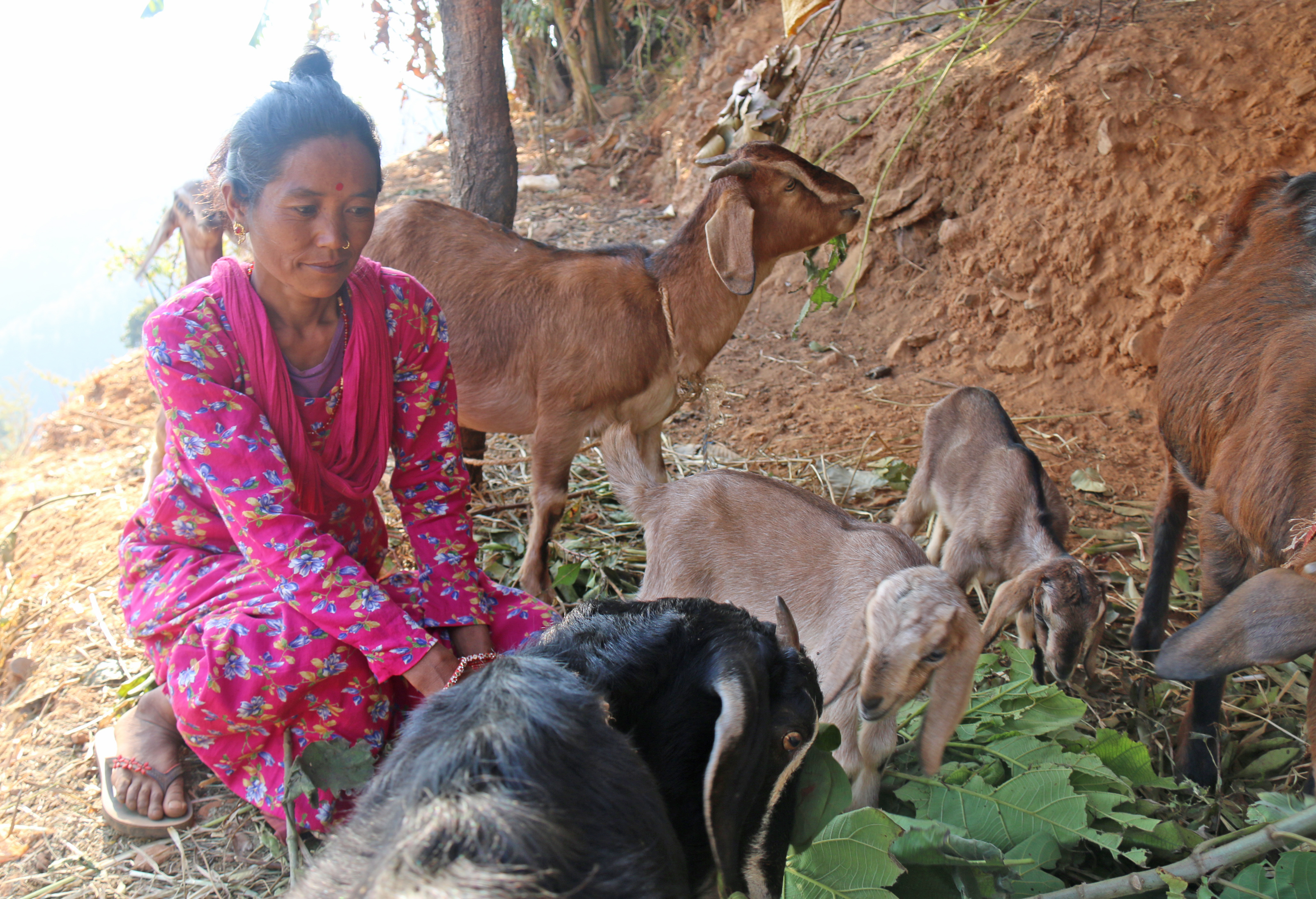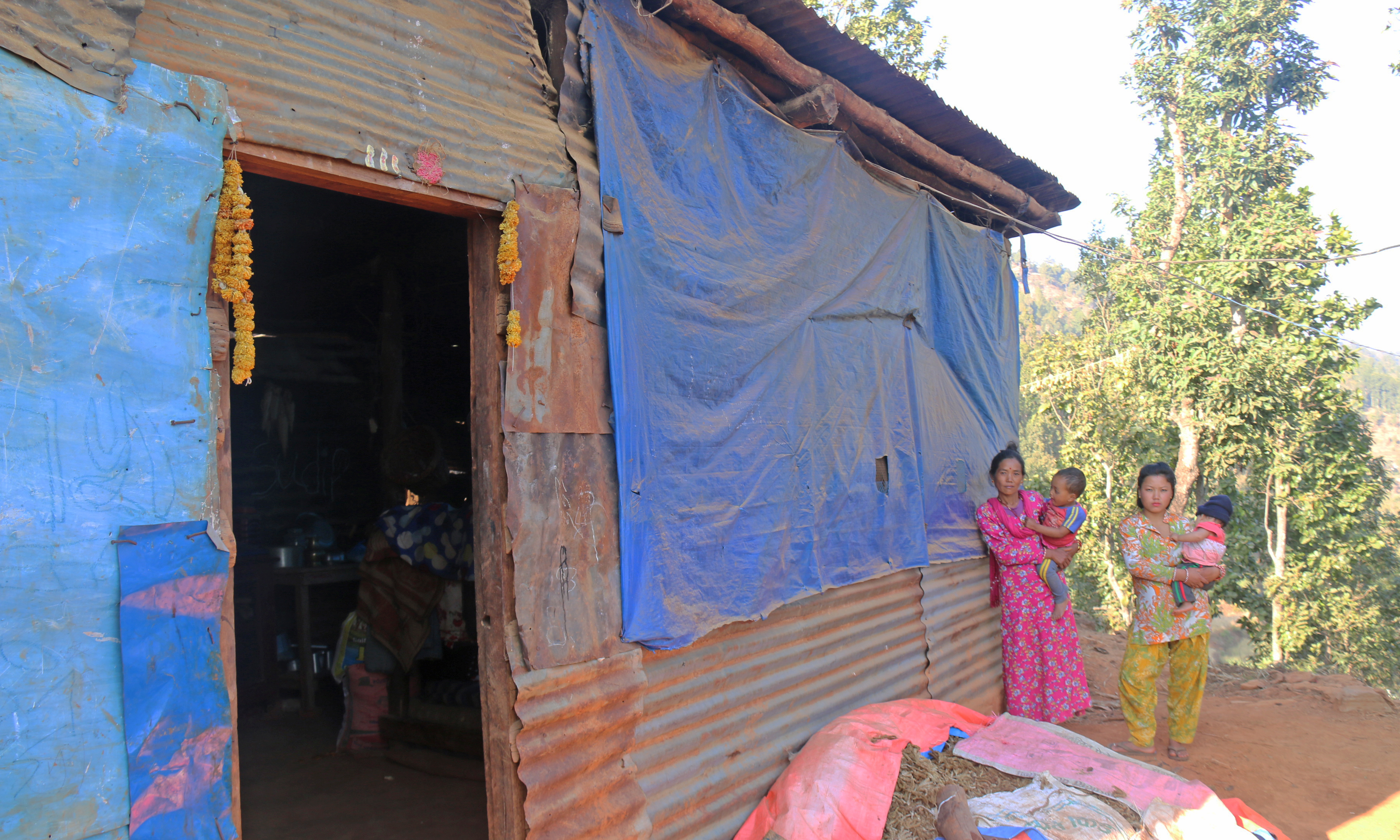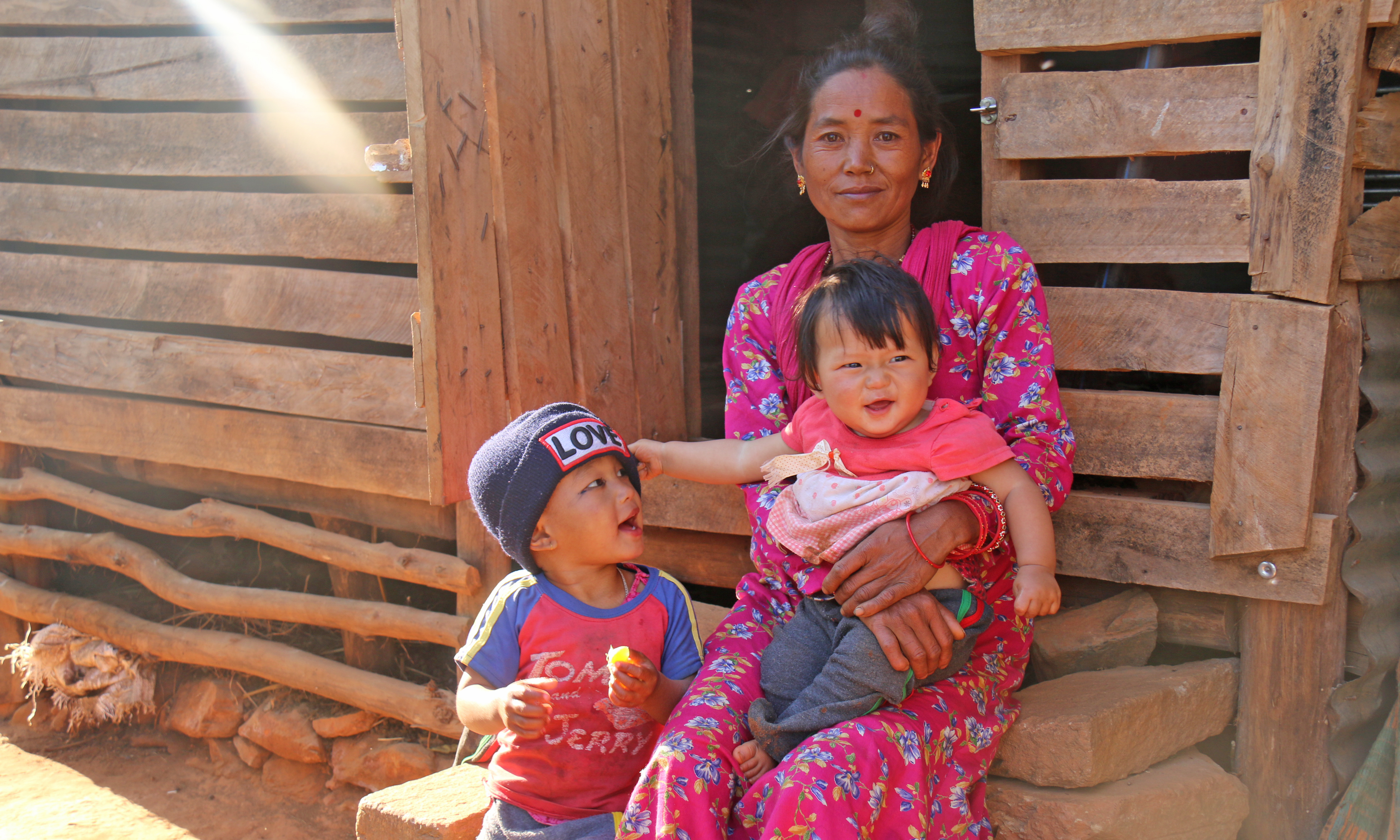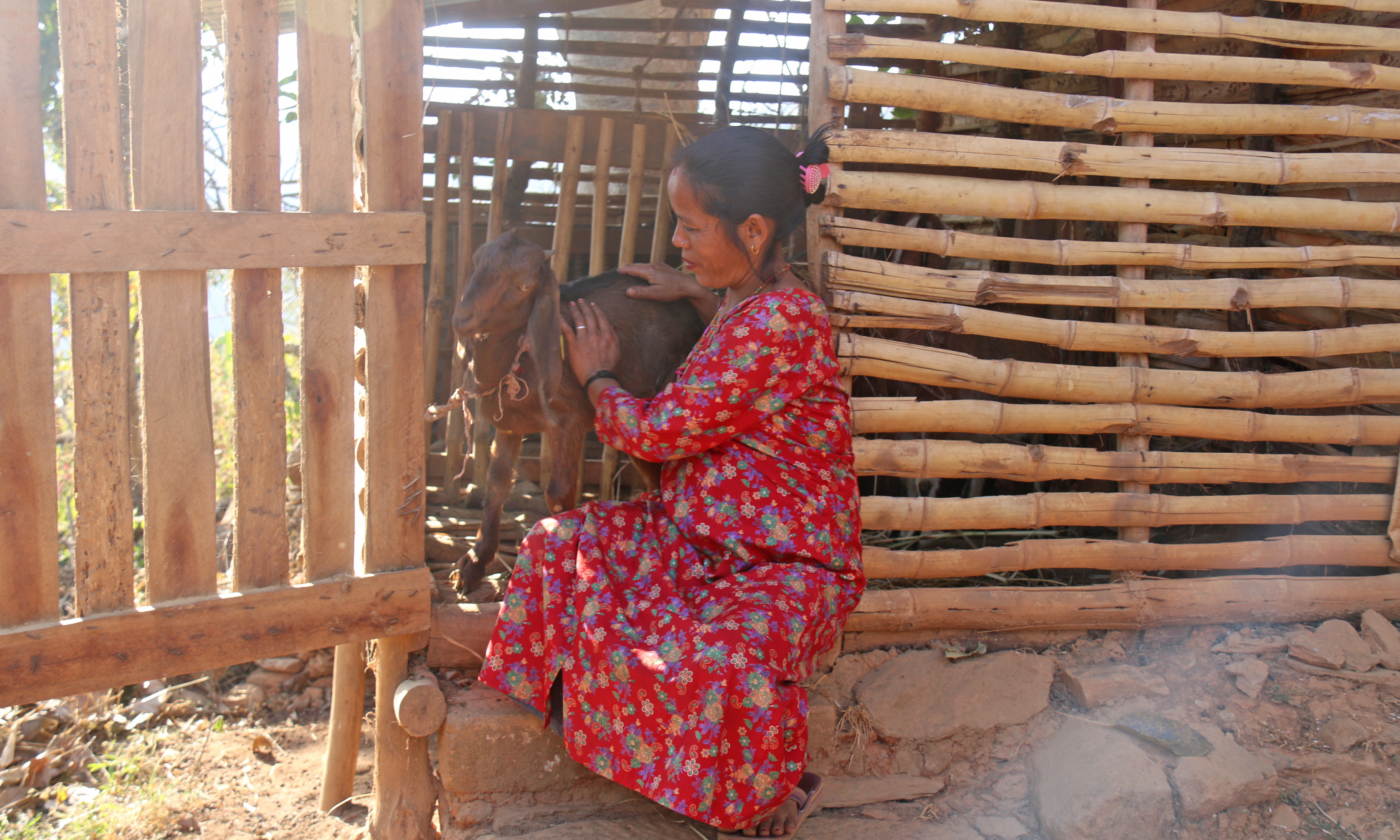Going hand-in-hand: Improved livelihood and community empowerment
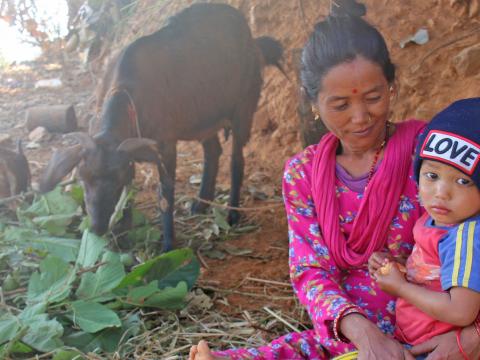
Cheerful Reeta cannot contain her excitement when a team from World Vision arrive at her community to review their progress in livestock farming. "I got three goats from World Vision around seven months ago and now they have already multiplied to seven," she exclaims with a big smile.
Reeta Magar, 40, from Tadabisauni, Nuwakot has set an example in her community and has been a source of motivation to her community.
But things have not always been so easy. Last year's massive earthquake destroyed her house and all her family belongings were crushed underneath the rubble. Her family had to survive for several days without food and shelter.
"The earthquake turned my house into a pile of dust within a matter of seconds but I am lucky no one in the family was injured," she says in a surprisingly cheerful tone. "My family of six is still living in a makeshift shelter just made of tarpaulins and iron sheets and we do not even have a farm for agricultural work. However, we are determined to create a better tomorrow."
She says, "It was really thoughtful of World Vision to provide livestock support for vulnerable families like mine at such a crucial time. I intend to save some money from commercial livestock farming and build a new house so that my grandchildren will have a proper roof over their heads."
Her words portray her confidence and enthusiasm.
As her little grandchildren play in her lap she says, "Immediately after the earthquake we were really desperate and we did not know what to do. But, now we have a path to follow. This livelihood opportunity has given us a new ray of hope. It's a new beginning."
But it is not easy to look after seven goats. Reeta wakes at four each morning to prepare the fodder. The goats keep her busy everyday as she regularly cleans the shed and takes special care of a nanny goat which is expecting in a few days. "Now, we will soon have eight goats," says Reeta's daughter, Sushmita. "Mother's hard work has not been in vain."
With the hope of supporting her mother to provide for their family’s daily expenses, Sushmita decided to help her.
After the earthquake, 40 vulnerable households in her community were provided three nanny goats each. Additionally, three bucks were also provided to her community for breeding purposes. Now, after seven months the results are encouraging as most beneficiaries have been successfully breeding the goats.
Suntali Mijar, 32, another beneficiary is also content with the livestock she has received and she is busy taking care of them. She had always wanted to raise goats to earn enough money to provide for her six children but she had neither capital to buy goats nor appropriate knowledge of animal husbandry. Working on a small piece of land, she had been struggling to make ends meet for her family of nine. Now, she feels relieved as she intends to earn income from goat farming.
She is also grateful for the animal husbandry training provided. "The five-day training was fruitful, as it provided us essential information on various issues such as managing fodder, preparing a clean shed, livestock insurance and goat rearing techniques," she says.
Manisha Ojha, World Vision's Livelihood Officer at Nuwakot explains, "As there is water scarcity in Tadabisauni and crop production is quite low, we decided to distribute goats and bucks to support livestock farming. If the local people continue to breed the goats and bucks it will support them in income generation for a long time. They will be better able to support their families through the sale of the goats."
By focusing on the livelihood needs of marginalised groups in earthquake affected areas World Vision is committed to contribute to the attainment of Sustainable Development Goal 8: Promote sustained, inclusive, and sustainable economic growth, full and productive employment, and decent work for all.
